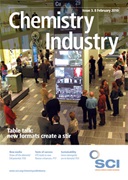Drug giant GlaxoSmithKline (GSK) has announced an initiative to encourage new research into neglected tropical diseases, primarily malaria. Among its plans is a decision to make thousands of anti-malarial compounds freely available to researchers – news that has been cautiously welcomed.
As part of its ‘open innovation’ strategy, GSK will spend $8m in seed funding to establish an ‘open lab,’ a GSK-owned and operated R&D facility in Spain to which 60 scientists from around the world will have access.
Moreover, to help find new treatments for malaria, GSK plans to make 13,500 anti-malaria compounds – chemical structures and assay data – freely available to researchers. GSK says the compounds have been screened from its pharmaceutical library of more than 2m molecules for any that may inhibit Plasmodium falciparum, the parasite that causes the deadliest form of malaria.
In comments to the Council on Foreign Relations in New York, GSK’s ceo Andrew Witty said the move was partly to earn the trust of society. ‘We want to be a company that is truly a partner in addressing the healthcare challenges in the world’s poorest countries, no matter how difficult they are,’ he said.
With the image of big pharma damaged by drug safety revelations and scandal, however, some critics might suggest that GSK will have already cherry-picked the most promising compounds from its library before releasing the rest as an exercise in public relations.
Nevertheless, the move has been well received. ‘The public availability of these compounds for malaria research is an excellent idea. Providing access to this level of information could revolutionise the urgent search for new medicines to tackle malaria,’ says Tim Wells, chief scientific officer of the Medicines for Malaria Venture (MMV), which helped GSK to screen the compounds. Wells says GSK is working on a dozen or so of the identified compounds and that MMV is eager to conduct further research on some of the others. ‘Not all chemists and biologists find the same compounds exciting,’ he points out.
Peter Winstanley, head of the school of clinical sciences at the University of Liverpool, UK, also welcomed the plans. However, Winstanley points out that GSK is making the structures and their supporting data – not the library – available, and that researchers might need to synthesise the compounds that they want to work on.
While it is a good thing to have 13,500 hits, he says, hits are a long way from leads, which themselves can be 20 years and several hundreds of millions of dollars away from prescription drugs. ‘So this is a well meant and helpful gesture, and I believe it will be useful,’ says Winstanley. ‘But do not expect new miracle drugs at once, and do not expect them without the usual blood, sweat, tears, major investment and pharmaceutical R&D knowhow.’





